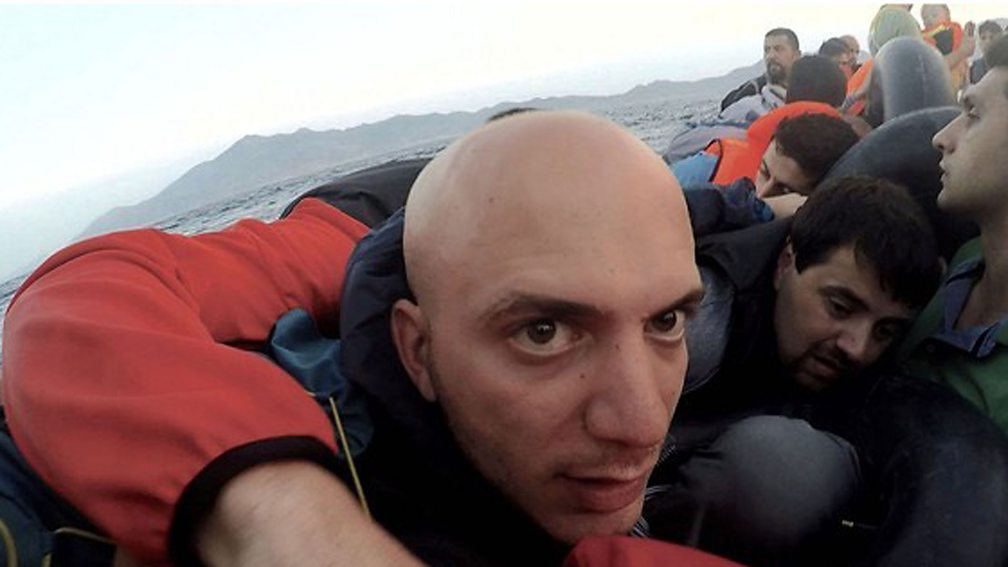“I thought I was going to have a normal life.” With that introduction, Hassan Akkad, an author, photographer, and documentary filmmaker shared his experience as an activist in Syria and later as a refugee, during a Northwestern Qatar Hiwar Speaker Series event.
Akkad, who was an English teacher in Syria when the Arab Spring began, said the outbreak of the protests in Damascus led to the start of his and many others' political activism. “The older generations were very hesitant [to join the protests] … I naturally protested and started filming the protests to show the people what was happening,” he said.
During a conversation moderated by Professor Rana Kazkaz, Akkad told his story that led to two arrests that included torture. According to Akkad, imprisonment in Syria was done “to break your spirit, and they are really good at it.”
“The fact that it [storytelling] worked, restored my confidence as an activist”
Following his first imprisonment, he was invited to meet with President Bashar Al-Assad. “I thought I was the guy that was going to go and change his mind,” he said, but after speaking about the injustices protestors face and narrating the torture in prison, Assad became defensive.
Realizing that he was in danger of a second imprisonment, Akkad attempted to escape to Lebanon. But, when the secret police took his father, Akkad returned, and was again arrested and placed in solitary confinement, which he described as the “worst invention of mankind.” He was released after two weeks, because of connections through his students. He left Syria and for the next three years traveled between Lebanon, Egypt, and the UAE.
When the Russians intervened in Syria in 2015, Akkad realized that the Assad government would likely remain. It was then that he decided to leave Syria through Turkey with England as his ultimate destination. Crossing the Mediterranean from Turkey, he filmed the journey with 63 other refugees on a sinking boat that became part of the BAFTA-winning documentary Exodus: Our Journey to Europe.
After more than 80 days traveling through Europe and, after several failed attempts to cross the Calais canal, he flew on a fake passport to London. “I felt I was physically safe and that nothing would happen again,” said Akkad.
But Akkad’s story was not over. After obtaining asylum in the U.K., he worked as a cleaner in a COVID-19 isolation ward in a London hospital. When he and his fellow cleaners were excluded from a government’s bereavement compensation scheme, he was reminded of the injustices he faced in Syria and decided to speak out. “There was this feeling, too: I have come from Syria; these are not things I would expect to encounter here.”
After Akkad posted a video online directed to Boris Johnson, the government reversed its policy. “The fact that it [storytelling] worked, restored my confidence as an activist,” Akkad said.
Akkad has written a memoir on his experience, Hope Not Fear: Finding My Way from Refugee to Filmmaker to NHS Hospital Cleaner and Activist. The full presentation can be found on Northwestern Qatar’s YouTube channel.

